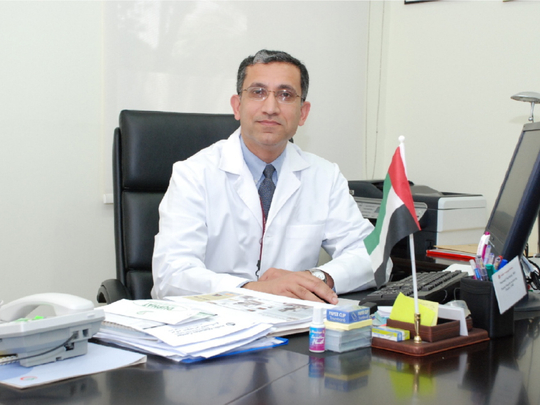
Dubai Health Authority (DHA) has revealed that it plans to expand the Dubai Diabetes Centre’s facilities and services to increase its patient capacity and add more specialities related to complications from diabetes.
Dr Muhammad Hamed Farooqi, Director and Consultant Endocrinologist of the Dubai Diabetes Centre, said the centre will redesign its current premises to add clinical space and specialities.
“As part of the expansions, we plan to add specialities related to complications arising from diabetes such as nephrology. We also look forward to increasing our podiatry services.”
Dr Farooqi said this will allow patients to receive all the diabetes-related services for subspeciality care under one roof instead of going elsewhere.
He said this will add additional services to the centre, which currently includes endocrinologists, diabetes nurse specialists, diabetes dietitian specialists, podiatrists, a mental health counsellor, physiotherapists, retinal photographers, part-time ophthalmologist as well as support services that include a pharmacy, gym and a phlebotomy facility.
Prevalence of diabetes
Providing quality care to patients with diabetes is essential, especially after a survey conducted by DHA’s Dubai Hospital revealed that the total prevalence of diabetes among Emiratis in Dubai is 19 per cent, while the prevalence of undiagnosed diabetes cases among Emiratis is 11 per cent. The rate of prediabetic Emiratis is 18.6 per cent.
With the high prevalence of diabetes in the UAE, combined with the fact that the management of diabetes is mostly done on an outpatient basis, the Dubai Diabetes Centre was inaugurated in 2009 to provide comprehensive diabetes management, education and research under one roof.
Dr Farooqi said latest statistics from 2016 found that 38,393 outpatients visited the outpatient centre, of which 34,101 were follow-up patients, and 4,292 were new patients. The data for 2017 is under compilation. He said the majority of the patients were aged 40-70 years, and that 52.91 per cent were female patients and 47.09 per cent were males.
Dr Farooqi added that 75.06 per cent of the patients had type 2 diabetes while the rest suffered from type 1 diabetes, gestational diabetes and impaired glucose tolerance.
The achievements of the centre, which aims to provide patients with tools to manage diabetes effectively, include becoming the first facility to start an evaluation of the exercise capability of diabetic patients.












